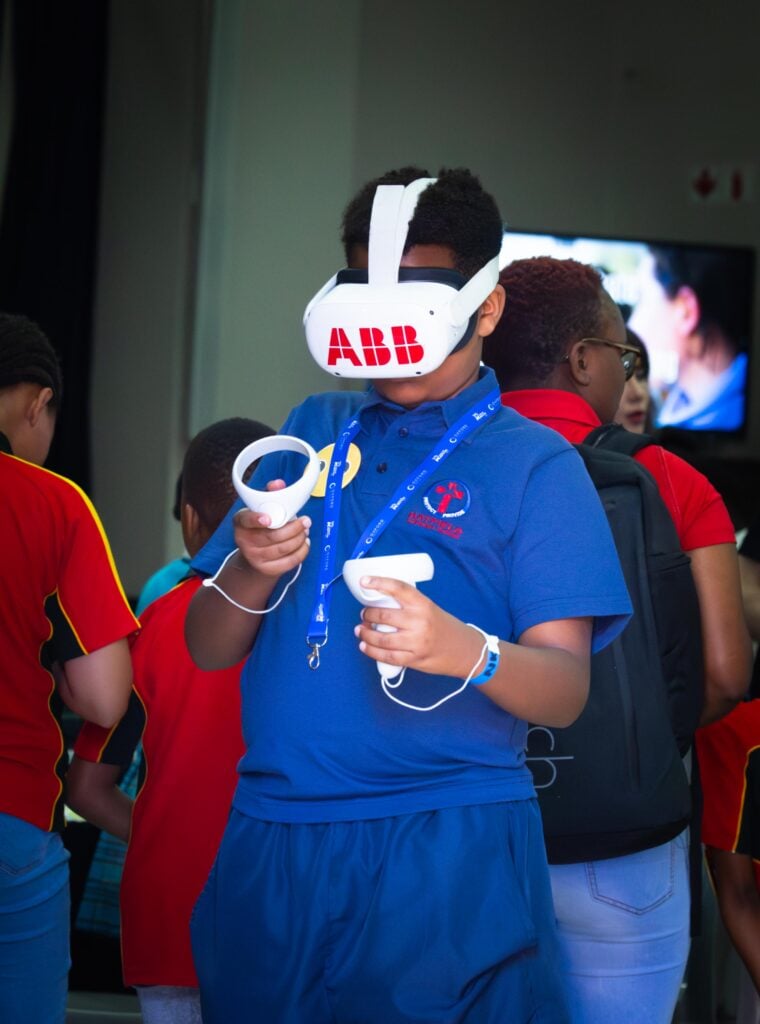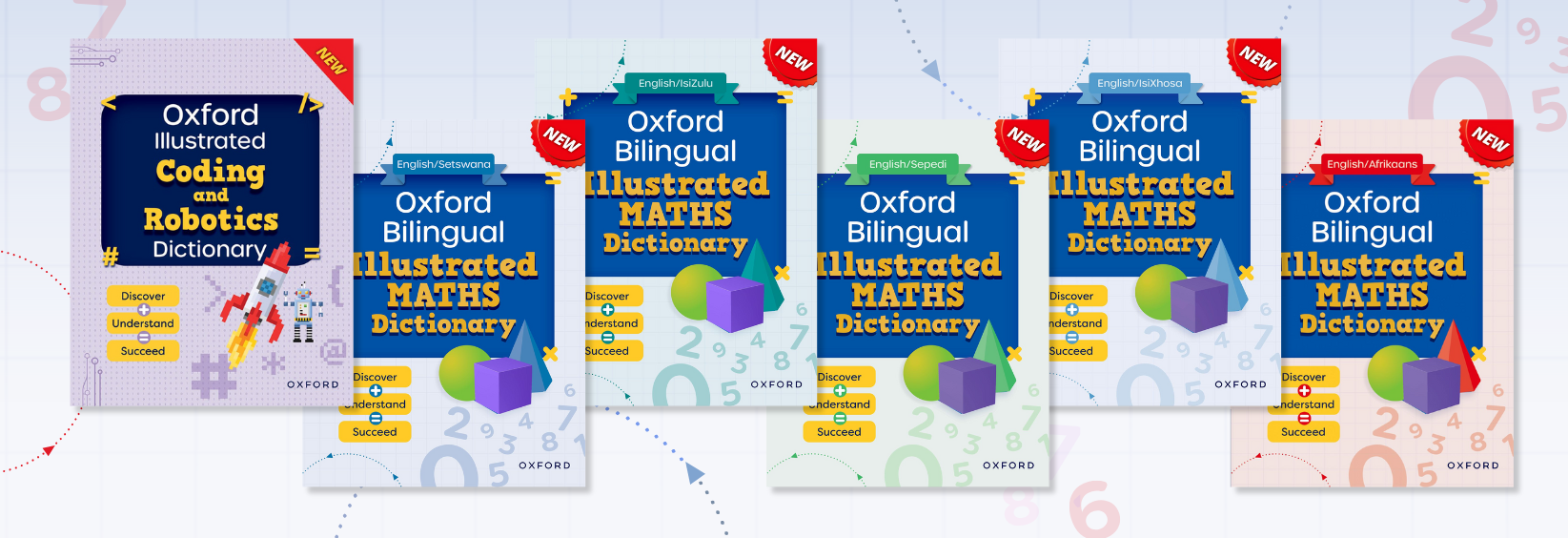Why STEM subjects are crucial for study and career success
According to the National Science and Technology Forum, exposure to problem-based learning helps children develop critical, analytical thinking skills to solve real-world problems. Moreover, this approach supports them in becoming confident and competent adults able to adapt to the demands of the rapidly changing 4IR, of which Information and Communication Technologies (ICT), Artificial Intelligence (AI) and Big Data form the core.
Enter Coding and Robotics
 In South Africa, the Department of Basic Education has been calling for a focus on Maths and Science for years and has been advocating for technology-focused schools with Technology and Engineering as part of the subject offering. Now the Department has made the leap to encouraging the development of 21st-century skills with the addition of Coding and Robotics to the curriculum for Grades R-9.
In South Africa, the Department of Basic Education has been calling for a focus on Maths and Science for years and has been advocating for technology-focused schools with Technology and Engineering as part of the subject offering. Now the Department has made the leap to encouraging the development of 21st-century skills with the addition of Coding and Robotics to the curriculum for Grades R-9.
The subject incorporates five study areas, i.e. pattern recognition, algorithms and coding, robotics skills, internet and e-communicating, and application skills. The curriculum is set up in such a way that under-resourced schools can teach ‘unplugged’ coding using e.g. board games, puzzles or mobile phones, as the underlying skills being taught are systematic and logical thinking, approaching problems scientifically, problem-solving and decision-making, information management, and entrepreneurship, among others.
Meaningful careers
What sets Coding and Robotics apart from more theoretical subjects such as pure Maths or Science is what the NTF defines as hands-on learning with real-world applications. Being exposed to robotics and artificial intelligence on a practical level ignites learners’ curiosity and interest in finding innovative solutions to the challenges facing our society on all fronts. And becoming lifelong learners can lead to meaningful careers with unlimited opportunities.

In its Future of Jobs report (2023), the World Economic Forum predicts that by 2025, 85% of jobs will require digital proficiency – for example, basic knowledge of how computers are used in the workplace. The WEF also notes that currently less than 30% of South African learners are taking Maths as a matric subject. In some schools, gateway subjects such as Maths and Science are no longer offered as the pass rate is so poor and learners view traditional jobs in those fields as unattainable.
Yet the 21st-century skills set extends far beyond computer engineering or data analysis as technology starts to permeate all areas of our lives and new technologies emerge. The WEF’s list of the Top Ten Emerging Technologies includes how AI impacts scientific research in health, communication, infrastructure and sustainability, and accelerates scientific discovery in e.g. materials science, genetically engineered transplant organs, or growing alternative livestock feeds from single-cell organisms.
Non-traditional STEM careers include those of cryptozoologists (the study of long extinct animals), urban growers (‘green’ jobs focused on finding sustainable and environmentally friendly ways of producing food within cities), or even snake ‘milkers’ (extracting venom for medicinal uses, e.g. for treating Alzheimer’s disease).
STEM jobs that don’t require a degree are proliferating and include those of veterinary assistants, pharmacy technicians, graphic designers, and web developers. The opportunities are endless – but require a foundation in Maths and/or Science subjects at high school level in order to access tertiary education or training.
Growing the economy
At 33,5%, South Africa’s unemployment rate is currently the highest in the world, according to the World Bank. The South African government has recently published a revised critical skills list comprised of 142 occupations needed to stimulate economic growth – and Maths and Physical Sciences are needed for many of the jobs on the list.
The country has a skills shortage of up to 70 000 ICT professionals alone. Solving the skills shortage fast may turn the economy from sliding into a recession, to a thriving and dynamic engine driving a better life for its citizens.
According to a 2023 article by Alex Rose-Innes published in the African Scientists Directory, STEM skills are the most sought after by employers. It is no surprise, then, that the highest-grossing STEM degrees pay far more than the average South African graduate can earn. Top of the list is engineering graduates, with chemical engineers leading the pack by earning average salaries of R603.999, according to research by Adzuna.
Interestingly, the research also reveals that information technology graduates are most in demand, while computer science graduates may expect a combination of high-paying jobs offering a variety of career opportunities.
Not all of us need to be engineers, IT specialists or computer scientists. AI is reshaping the job market and leading to skills-first hiring, as employers across all industries realize how valuable AI-relevant skills are for achieving productivity growth much faster than sectors making less use of AI, according to the WEF. Skills-first hiring also invalidates work experience, which can smooth the path for young people displaying talent. Research shows that employees with AI skills can command up to a 25% wage premium.
And it all starts with choosing STEM subjects at school.
To support learners in building a strong foundation in Maths, OUPSA has published the Oxford Bilingual Illustrated Maths Dictionary in English + Afrikaans, isiZulu, isiXhosa, Sesotho, Setswana and Sepedi, with Siswati and Xitsonga following shortly. The first dictionary in their Oxford Illustrated Coding and Robotics series – an English monolingual – is now available, while an English-Afrikaans bilingual dictionary is in production.
For more information on these products, visit the OUPSA Catalogue & Pricelists webpage or phone Customer Services at +27 (0) 21 120 0104.
